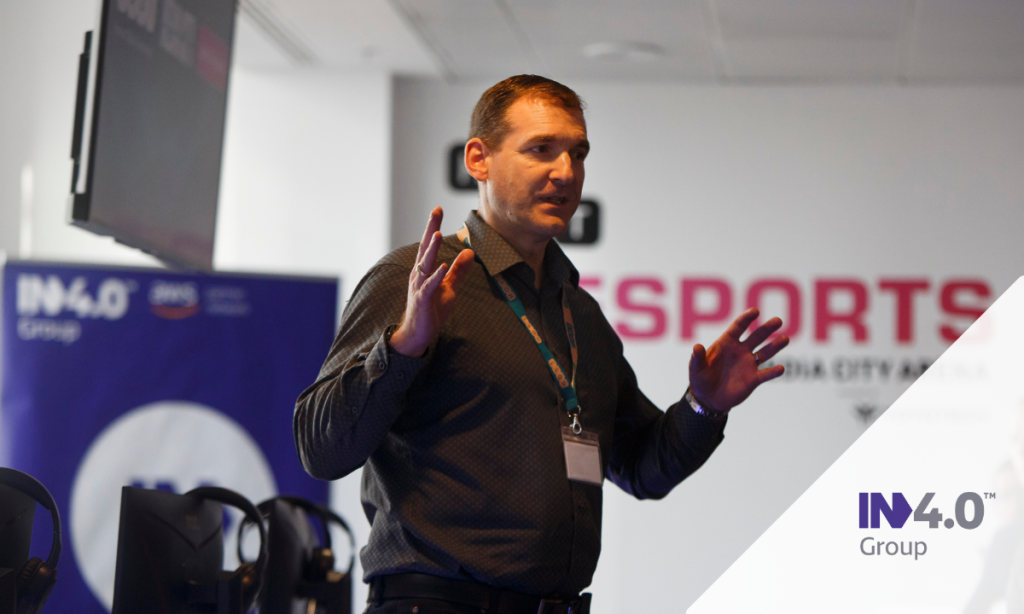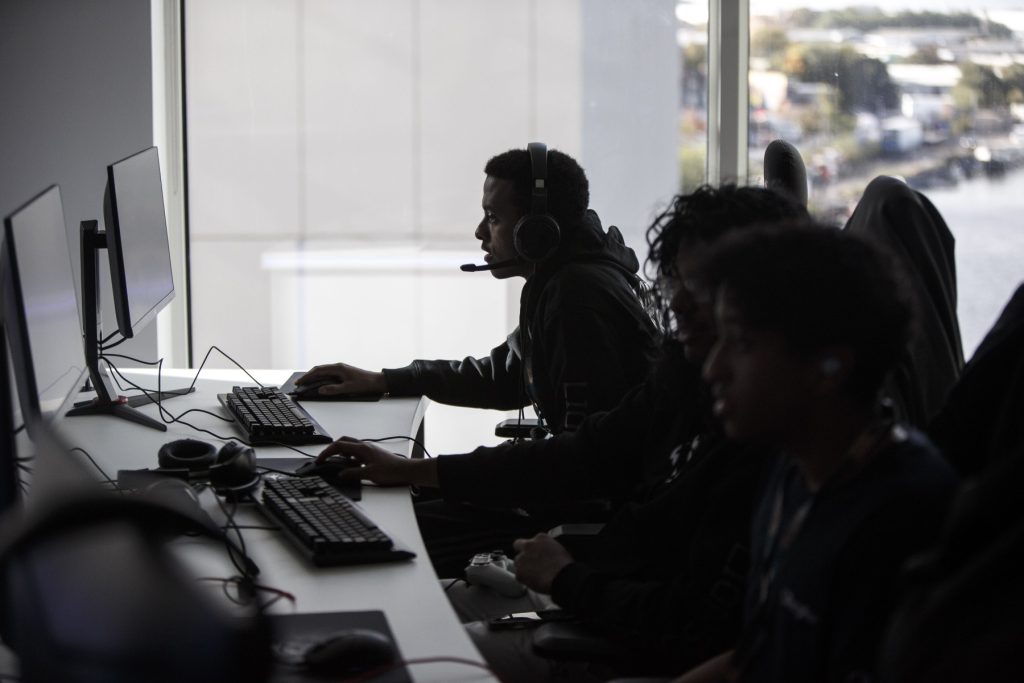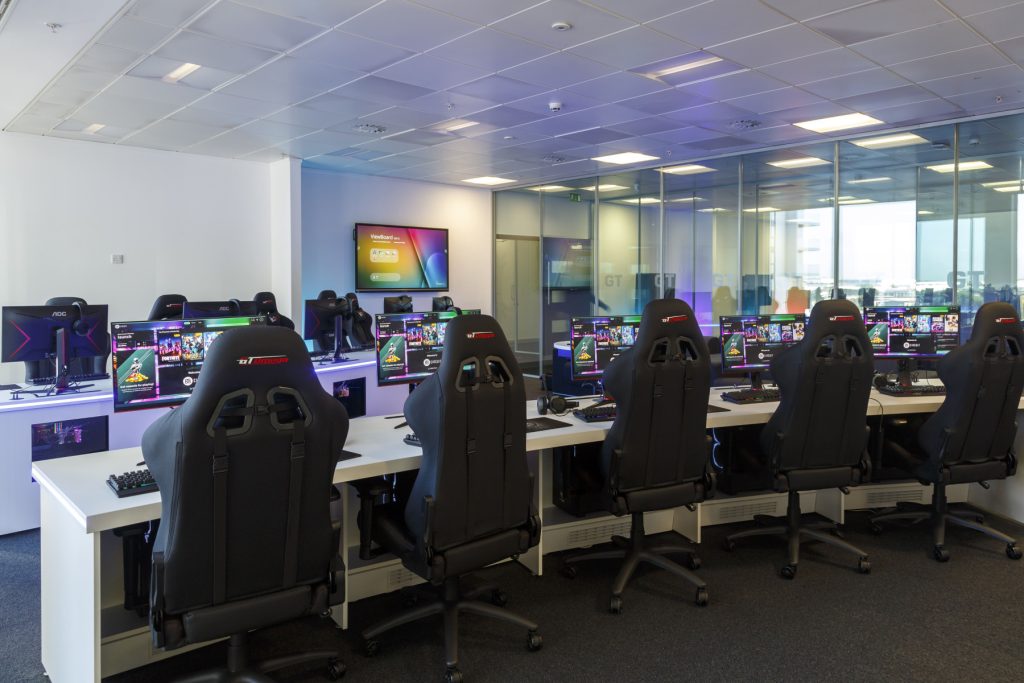
Just like other mainstream sports, esports isn’t about just the players but the whole production pipeline. It starts with players but also includes support staff such as managers, coaches, marketing and PR coordinators, community managers and many more.
There are also many roles related to the delivery of esports, such as commentators and technical staff, that manage competitions and broadcasts. Esports is a huge industry with a wide range of career opportunities — many of which share parallels with other industries, making it possible to build skills in the context of esports yet pursue a career in other fields such as media streaming services, sports, gaming more generally, marketing, community management and much more.
Gametech is a technology field that describes the tools that have been developed in the production of video games, for example, game engines, creative tools and data analytics tools — however, these same tools are now used widely in many other industries such as healthcare, simulation, training, virtual production, interactive web applications and engineering.
The demand for gametech skills is already huge and is rising rapidly, driven by many factors such as the booming video games market, the adoption of immersive technology, the demand for interactive and ‘gamified’ content and the transition to the metaverse.
Esports, as it turns out, is a great industry to acquire skills that can translate to gametech. These range from the basic understanding of major game mechanics, proficiency with video and streaming technologies, and an understanding of event production. Skills needed to be a successful streamer can translate to a career in gametech easier than one might think.
Simon Benson, Director of IN4 Group, spoke to Esports Insider about the future of both gametech and esports and how the two fields can complement each other.

A foot in the esports door
Esports, it seems, is a fantastic way to get into gametech.
“Currently, we do not have enough people in the world to meet the demands of making games and other interactive ‘non-game’ content that also now use Game Engines — so it’s a great time to consider a gametech career as I predict that in the not-too-distant future, every business will have interactive 3D content as a part of their web presence,” Benson said. “They all need gametech-skilled people to build it, and this is not just video games, but every business in every sector.”
This is shown by the fact that game engines are now used in many more industries than gaming, from healthcare to architecture. For example, game engines such as Unreal Engine and Unity are used by architects for visualising their designs and then to help them to sell the spaces to people before they are even built.
But where does esports fit in here? Benson noted three main examples of esports know-how benefiting future gametech employees — and vice versa.
The first one is that game design can be understood better by following competitive gameplay. Esports fans have an implicit understanding of how to make maps challenging, entertaining to play and watch, and, importantly, that prioritise competitive integrity. With a deep understanding of such game principles, one could land a coaching position in an esports team, but working in esports could also prove useful in game design.
The second example is the fast-growing streaming sector, in which streamers must be familiar with a set of gametech software and hardware solutions to be successful. This also works both ways: if a person understands streaming technology, they have an edge in content distribution and creation, and content creators make for good employees in companies focusing on creating this kind of content, for example digital marketing or social media management.
Lastly, organisers of esports tournaments and events have the experience that can help launch a career in events management, marketing, project management and community management.

Steadily improving IN4’s presence in esports
IN4 Group has been steadily increasing its esports presence, culminating in an esports facility located at Media City in Salford, Manchester. It has a tournament area, a training and coaching space and a casual gaming space, coupled with a gametech education space with both a traditional classroom and a space for gaming PCs. The space also offers content creation and production capabilities, VR and AR kits and other high-end hardware and software.
Benson explained the details of the facility: “The strategy is to operate the facility as a professional esports facility and also to combine this with industry-enabled upskilling so that learners can come to the facility and be inspired by the opportunities to turn their passion for esports into a career, and then learn more about the world of esports and gametech via one of our regular boot camps and programmes, enabling them to operate the professional equipment and learn from the pros to help them to become the next generation of gametech professionals.”
Of course, all esports are games, but not all games are esports. IN4’s facility at HOST, the Home of Skills & Technology in Salford, aims to couple training programmes and education with real-world esports applications and adapt the overall experience to both the esports and gametech industries. Benson noted that the esports programmes put a lot of emphasis on community building and engagement, but also focus on other gametech-specific skills so students can go into the “real world” and put their skills to use.
“We always include a significant industry project element on our bootcamps to allow people to specialise in opportunities that they are passionate about, so we ensure that we upskill them in the core elements of the topic and then support them to deliver their project to an industry partner that illustrates a real-world challenge — some of which they may not have realised was even an option when they set off on their journey.”
Gametech is one of the fields that is recording impressive growth each year, and the demand for skilled workers in the segment has never been greater. Those that are seeking a career which does not drag them away from esports can definitely feel at home there, and gametech workers are well-suited to the world of esports.
Supported by IN4 Group




